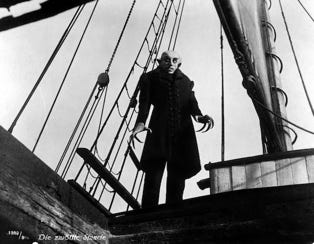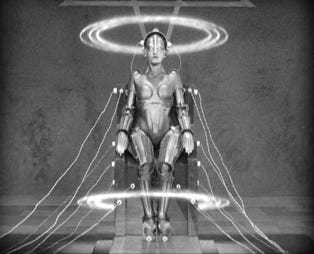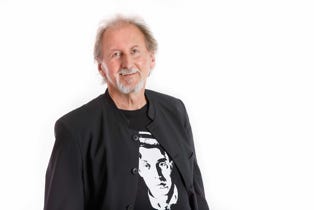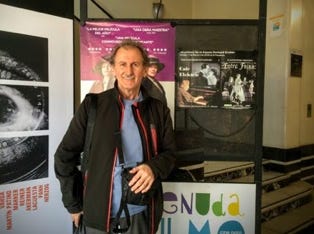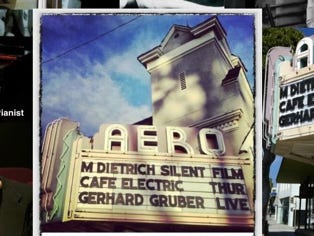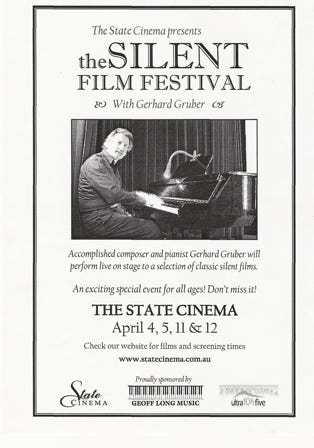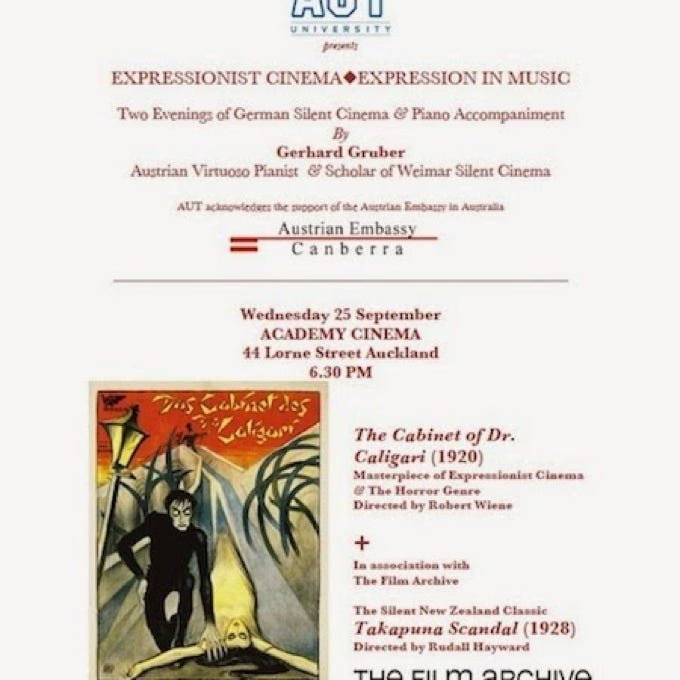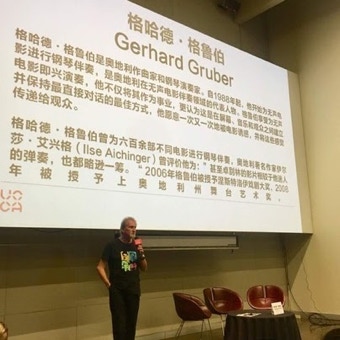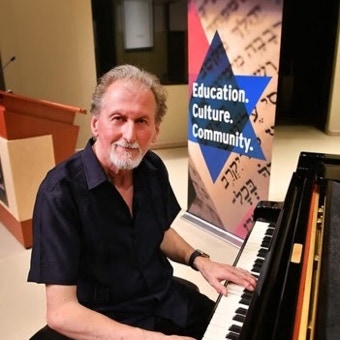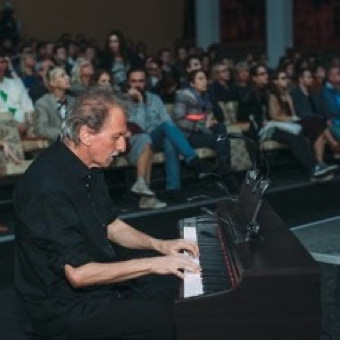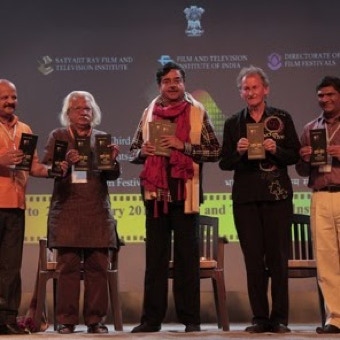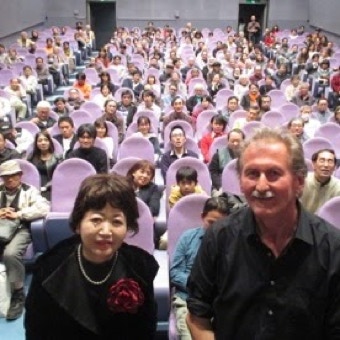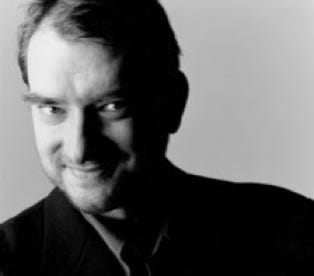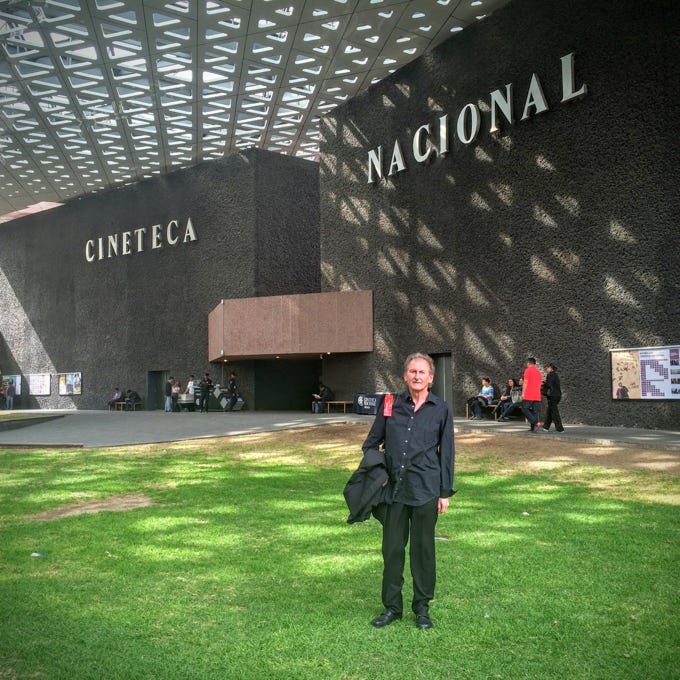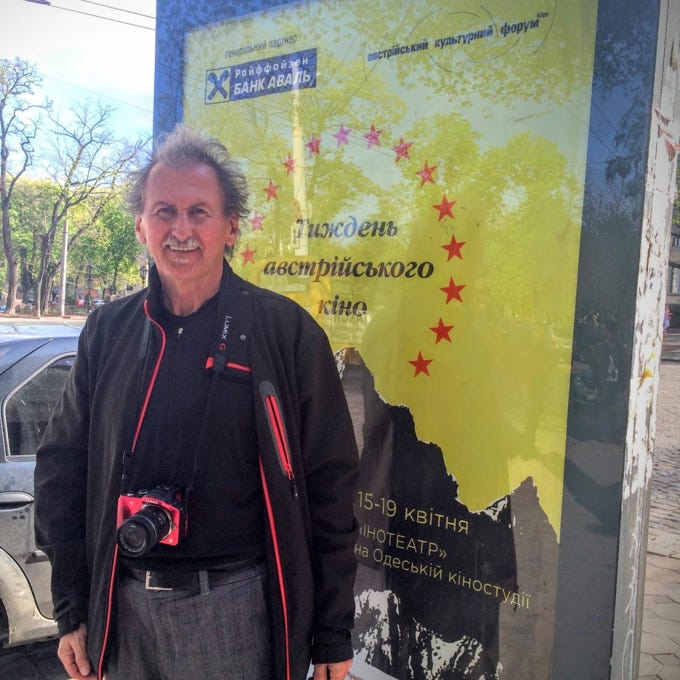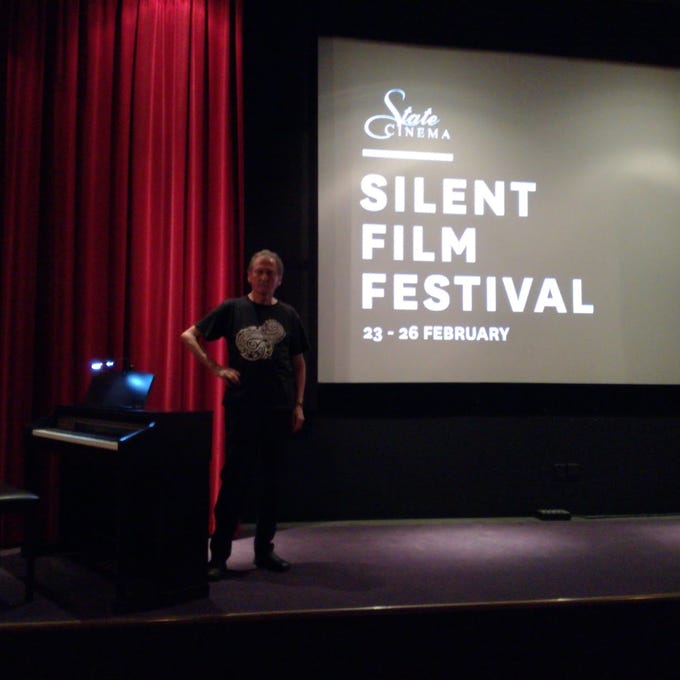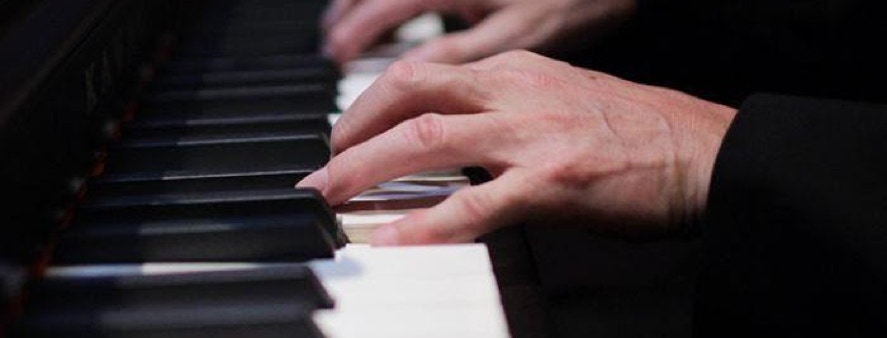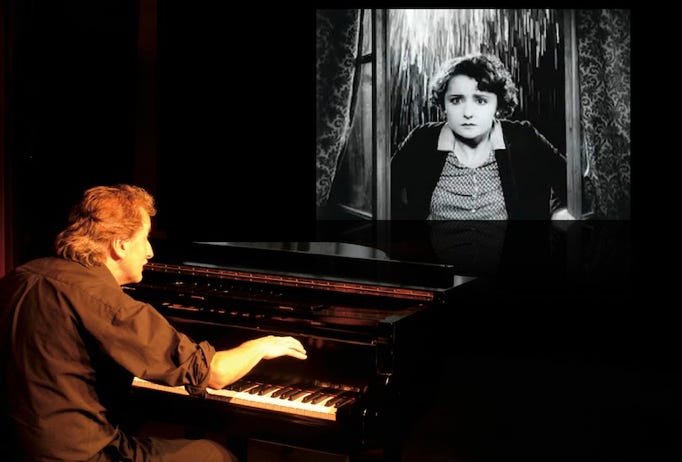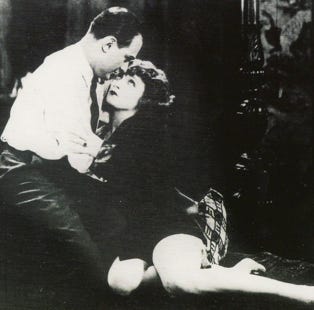Gerhard Gruber Silent film musician
Silent Movie Film Muet
Film music that lives from improvisation
Gerhard Gruber is an Austrian composer and piano player. As accompanist for silent movies he is travelling around the world and has become a leading authority in Austria since 1988.
He has performed for more than 700 different films
2024 Canals Spain, Ljubljana Slovenia
2023 Offenbach, Göppingen, Grünstadt, Bad Camberg
2022 Zerbst, Marktheidenfeld, Offenbach, Schwandorf, Hamburg
2025 Rom, Bukarest, Offenbach, Int.Filmtage Würzburg, DE-Tour
2019 Bratislava, Beijing International Filmfestival, York University Toronto, Cinematheque Luxembourg, Kiew
2018 Istanbul, Paris, Boston University, Washington, Mexico City, Madrid, Berlin
2017 Hobart/ Australia, Bratislava/ SK, Fondation Pathé Paris, Krasnoyarsk/ Siberia, Shanghai, Peking
2016 Boston Jewish Film Festival, Filmoteca Valencia, Querétaro, Cineteca Nacional Mexico City, Kiew, Odessa, Kharkiv
2015 3rd Students Film Festival of India FTII Pune, Film Festival Pisek
2014 National Film Archive Tokyo, Zagreb Film Festival, Antwerpen, Oslo, Luxemburg, Pisek, Grünstadt
2013 Murmansk, Hobart/ Australia, AUT Auckland/NZ
2012 NCPA Mumbai, FTII Pune, Los Angeles
2011 Washington, Los Angeles, Delhi, Pune, Goa, Film Festival Pisek, Filmfestival Uherske Hradiste/CZ
2010 Hobart/ Australia, Auckland/NZ
2009 MurmanskFilmfestival Uherske Hradiste
2008 Tokyo, Pisek/CZ, Hobart/AUS, Rotorua, Auckland/NZ, Padua
2007 Film Festival Motovun/HR, Tokyo, Hobart/AUS
Viennale, Diagonale, Hamburg, Filmarchiv Austria, Österr. Filmmuseum, Breitenseer Lichtspiele, Natschlag
At the core of his artistic approach, Gerhard Gruber holds a deep appreciation for improvisation. He believes it to be the most effective method of establishing a direct and ever-evolving dialogue among the on-screen events, the accompanying music, and the audience.
The beauty of this approach lies in the fact that no two performances are alike. Each time, the interplay between Gruber's work and the cinematic elements is fresh and spontaneous, offering a unique experience.
Gruber himself finds great joy in continually being enthralled by films, allowing himself to be captivated time and again. He embraces this passion and strives to convey these captivating emotions to the audience, forging a powerful connection between them and the cinematic art form.
Published music for: "Cafe Elektric", "The City without Jews", "Der Wiener Prater im Film", "Die Tat des Andreas Harmer", "Die Zunge des Zorro", "Tarzan von den Affen", "Frankenstein 1910", "Kino Wien Film"
Toronto 2019 - York University
Pune 2014 - FTII Film Festival
Tokyo 2014 - Filmarchive of Japan
ALEXANDER HORWATH, former director of the Austrian Filmmuseum, about Gerhard Grubers music for silent movies (excerpt):
... Music for silent movies needs a genuine musical partner of the film. The Austrian composer and (improvisation) musician Gerhard Gruber is one of very much, very few representatives of the profession, who meets this only apparently modest, actually however highest requirement. He is the partner par excellence.
The particular situation of silent film music, in which one part is ‘dead’ (which means old and stored on celluloid) and the other part ‘living’ (alive and capable of acting), paradoxically demands a musician who is not satisfied with this situation (with his or her own ‘advantage’), who wants to make the ‘dead’ part just as much alive as he or she is.
Grubers form of modesty is likewise his greatness; because it needs size to subordinate oneself as creative and idea-rich musician to an “uncommon text”.
Silent movie music in the sense Grubers is neither an exaggeration of the film, nor the “digestible making” of an “old-fashionable” artifact, neither a vanity nor another simplification of the existing work. It is always a partnership suggestion; in a partnership, which becomes never boring as it is guaranteed. An “open relationship” including intimate bond of trust.
Austrian Author ILSE AICHINGER about Gerhard Gruber:
Blue-Toned Silent Film Dreams
He doesn’t wear a Viennese medal of honor, nor does he create a commotion in the parliament and cause guessing games like Michael Jackson. Gerhard Gruber, composer and musician (“the piano player” as I know him), comes from the barren landscape of the Muehlviertel. He improvises on the piano to the silent films in the triangle that I often move in: between the Metro-Kino, the Breitenseer Lichtspiele, and the Filmmuseum—not Bermuda, but still a place where you can safely disappear.
He is the one who first makes each film possible and, at the same time, unnecessary. Those who have seen his hands move on the illuminated keys might even risk forgetting Chaplin to boost their memory of him. In letting yourself go, should you ask how much you have to let go? For Gerhard Gruber that isn’t relevant. Composing is an intellectual act. As he explains, improvisation is an act of love. “It wouldn’t surprise me if my playing changed the film.” And would this man - someone who knows how much the pictures have lost through dialogue cinema - sign a “petition against the talkies”?
“I am still breathing the air, but I don’t know what I should do with it,” stated E. M. Cioran. Those who listen to Gerhard Gruber play the piano can once again trust their own breath.
And Der Typ vom Grab nebenan (The guy in the next grave) (today at 6 p.m. in Cine-Kino)? You should help him out of there and quickly bring him, together with the others in danger of apparent death, to Breitensee, to Gerhard Gruber.
First published in: Die Presse, 12 March 2005, as “Der Filmerzieher”
Translated by Lisa Rosenblatt.
Mexico City 2016 - Cineteca Nacional
Hobart 2017 - State Cinema




